Anti-Inflammatory Tea- Here’s How To Brew Your Favorite Cup!
Looking for an anti-inflammatory tea to fight inflammation? Well, there are a few to help you. Whether you are searching for a tea to relieve a current injury or painful muscles or require relief from a severe inflammatory condition, tea can be a great way to reduce inflammation and soothe the pain.
There is a variation of beneficial compounds existing in numerous kinds of tea that can assist in calming inflammation comprising tea itself and other compounds such as rose petals and rose hips, turmeric, ginger, chamomile, and more. Plants, spices, and herbs have been employed medicinally for decades or even centuries.
They possess vital plant compounds called phytochemicals that can stop oxidative damage to the cells and decrease inflammation.
Due to such anti-inflammatory characteristics, some plants may help relieve pain that is caused as a result of inflammation. They might also help minister certain disorders that are accelerated by it.
Sipping tea produced from such plants, spices, and herbs is efficient to relish their benefits. Here are some strong teas that might be helpful to combat inflammation. Before suggesting an excellent anti-inflammatory tea, one must be aware of inflammation. Here’s what you need to know.
What is Inflammation?
Inflammation is one means that your body uses to protect itself from harm. When you receive a minor injury, damage, or bruise, you may be aware of acute inflammation. Acute inflammation is apparent by symptoms like soreness, redness, and swelling at the place of the cut as the body functions to repair itself and battle off any possible infections.
In extension to acute inflammation, regardless, a few people also undergo chronic inflammation, which continues in the body over time. Chronic inflammation can occasionally result from underlying illness or lifestyle influences such as smoking, stress, or being obese. Chronic inflammation is usually liable for strokes and heart attacks. Inflammation can contribute to additional chronic illnesses, such as arthritis, psoriasis, autoimmune disorders, and inflammatory bowel syndrome.
If you are searching to limit chronic inflammation, you may use a variety of anti-inflammatory teas and tisanes with beneficial anti-inflammatory characteristics. Tea can be an excellent addition to your healthy lifestyle when it arrives at combating inflammation and limiting chronic illness.
Below given are some anti-inflammatory teas to help you reduce inflammation.
1. Green tea (Camellia sinensis L.)
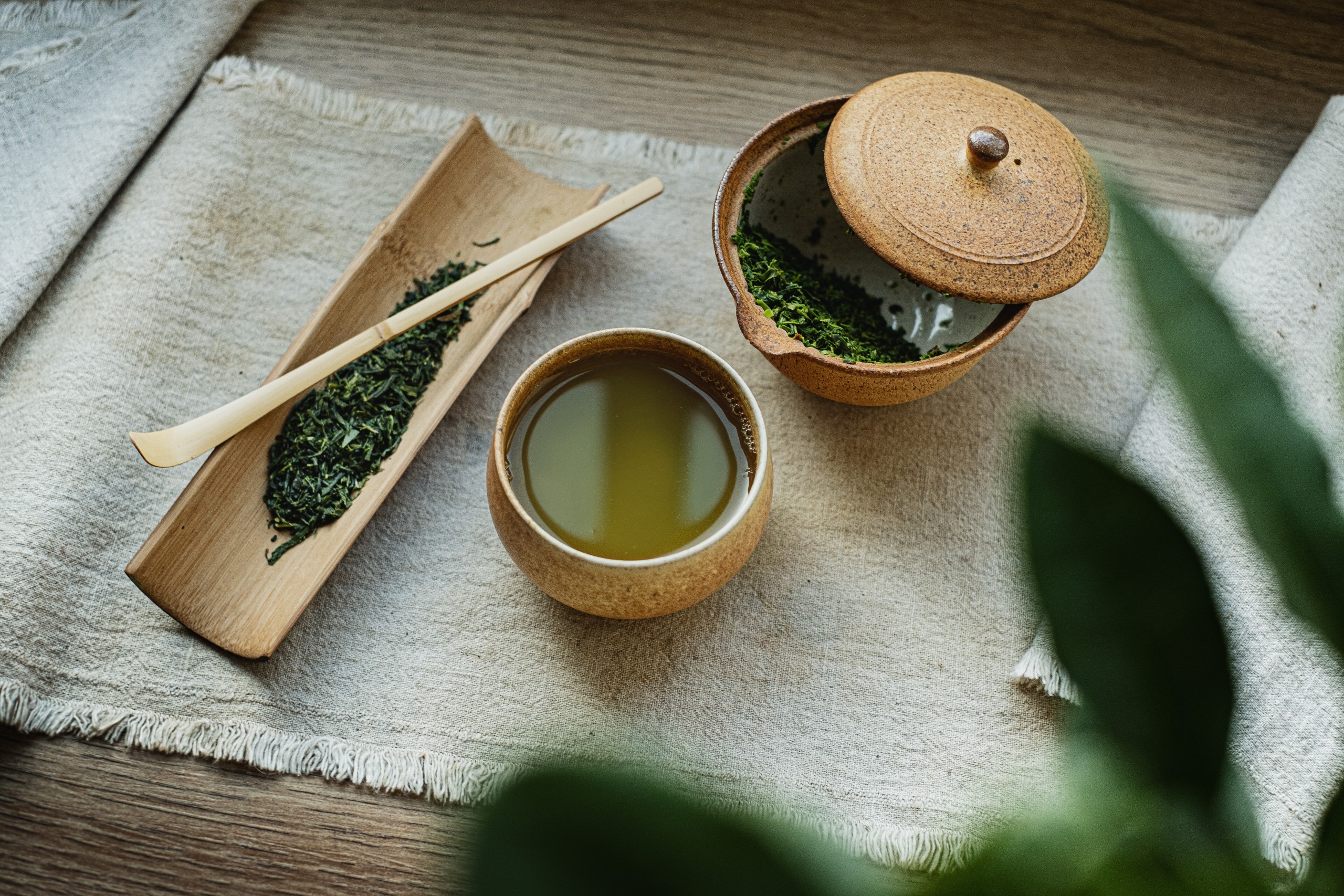
Green tea is produced from the exact shrub as your favorite black tea, but the processing of leaves is quite different, letting them retain their natural green color. The health-boosting compounds in a cup of green tea are known as polyphenols, among which epigallocatechin-3-gallate (or EGCG) is highly powerful.
EGCG possesses anti-inflammatory characteristics that help soothe some of the symptoms linked to inflammatory bowel diseases (IBDs), such as ulcerative colitis and Crohn’s disease.
In one study conducted for 56-days in people with ulcerative colitis who did not react to traditional medicine, treatment using the EGCG-based medicine helped improve symptoms by nearly 58.3%, then negligible improvements in other placebo fractions of people.
Green tea also reduces inflammation-driven ailments such as Alzheimer’s, heart disease, and even specific cancers cells.
To make one cup of green tea, dip loose tea leaves or a teabag in a tea infuser for five to six minutes. Matcha powder is ground tea leaves, and you can mix a spoonful of this powder into hot milk or water.
Although green tea is completely safe to drink for the majority of people, it has caffeine, which might negatively influence sleep quality if some people. Also, having a large amount of this anti-inflammatory tea may restrict the absorption of iron.
In addition to that, compounds present in green tea may mix with particular medicines, such as acetaminophen, nadolol, codeine, tamoxifen, verapamil, and bortezomib, so visit with your healthcare expert — particularly if you sip a lot of it.
If you wish to lend green tea a try, you can effortlessly search for it in nearby stores or online. Matcha powder is also available widely for consumption.
2. Holy basil (Ocimum sanctum)
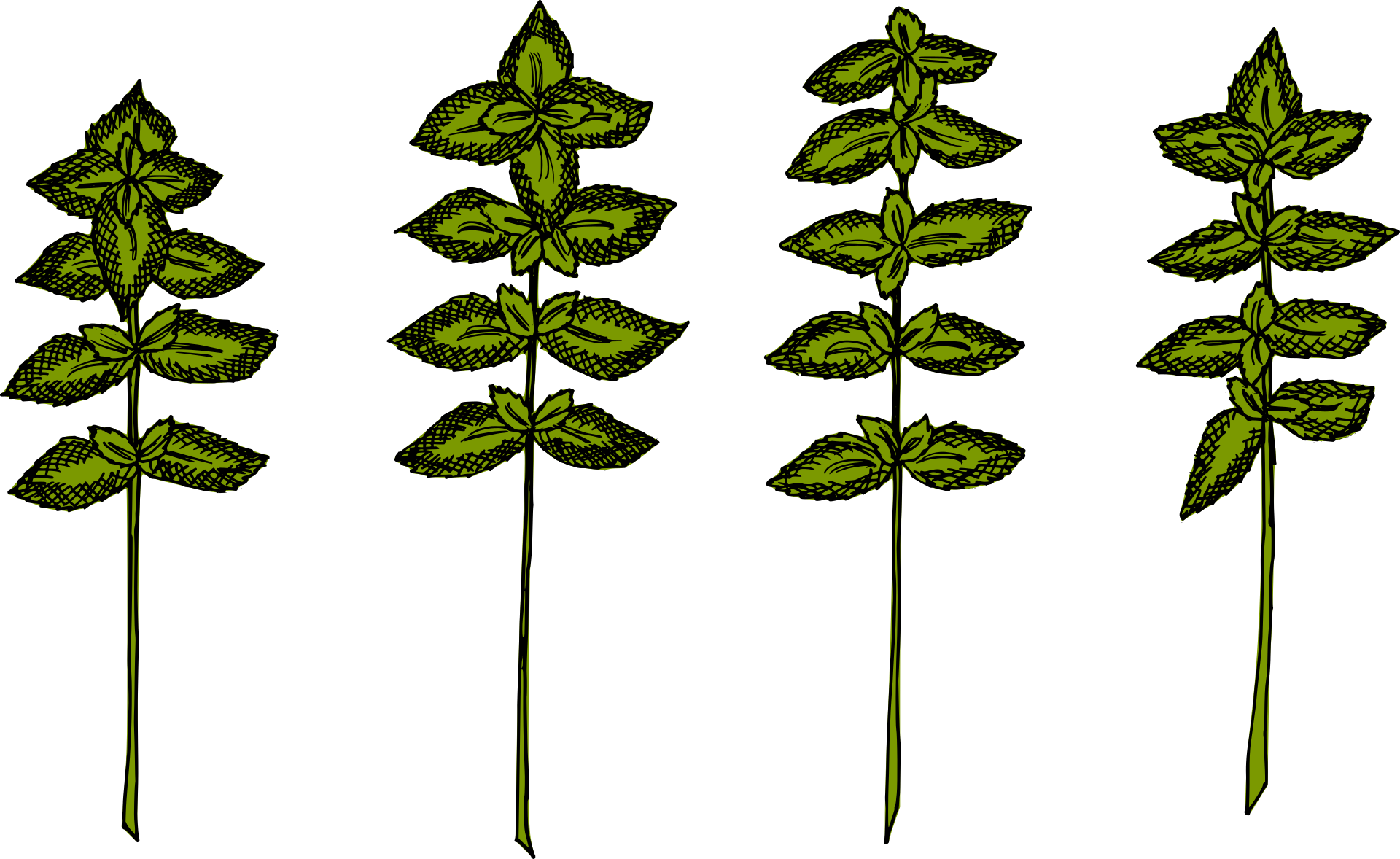
Also known by the Hindi term often used to describe it- tulsi, holy basil is an annual plant native to Southeast Asia and India. Ayurvedic medicine is popularly called “the queen of herbs” and “the incomparable one” due to its broad range of health-boosting properties.
It is cited as an adaptogenic herb in regular medicine, and holy basil is believed to assist your body in counteracting emotional, metabolic, and environmental stress. These are usually the bottom causes of inflammation that further causes chronic disease.
Both human and animal studies have discovered that holy basil possesses anti-inflammatory functions that might decrease blood sugar, blood pressure, and cholesterol.
Compounds found in the seeds and leaves of the holy basil might also decrease uric acid levels, releasing the pain from inflammatory ailments like rheumatoid arthritis and gout.
Some compounds of the holy basil combat inflammation by hindering the functioning of cox-1 and cox-2 enzymes, which generate inflammatory compounds and induce pain, inflammation, and swelling.
Holy basil or tulsi leaves tea is readily available at various natural food shops and online. To prepare your anti-inflammatory tea, use a tea bag or loose leaves and let it Drench for five to six minutes.
Tulsi tea is safe for the utmost people to relish every day.
3. Turmeric (Curcuma longa)
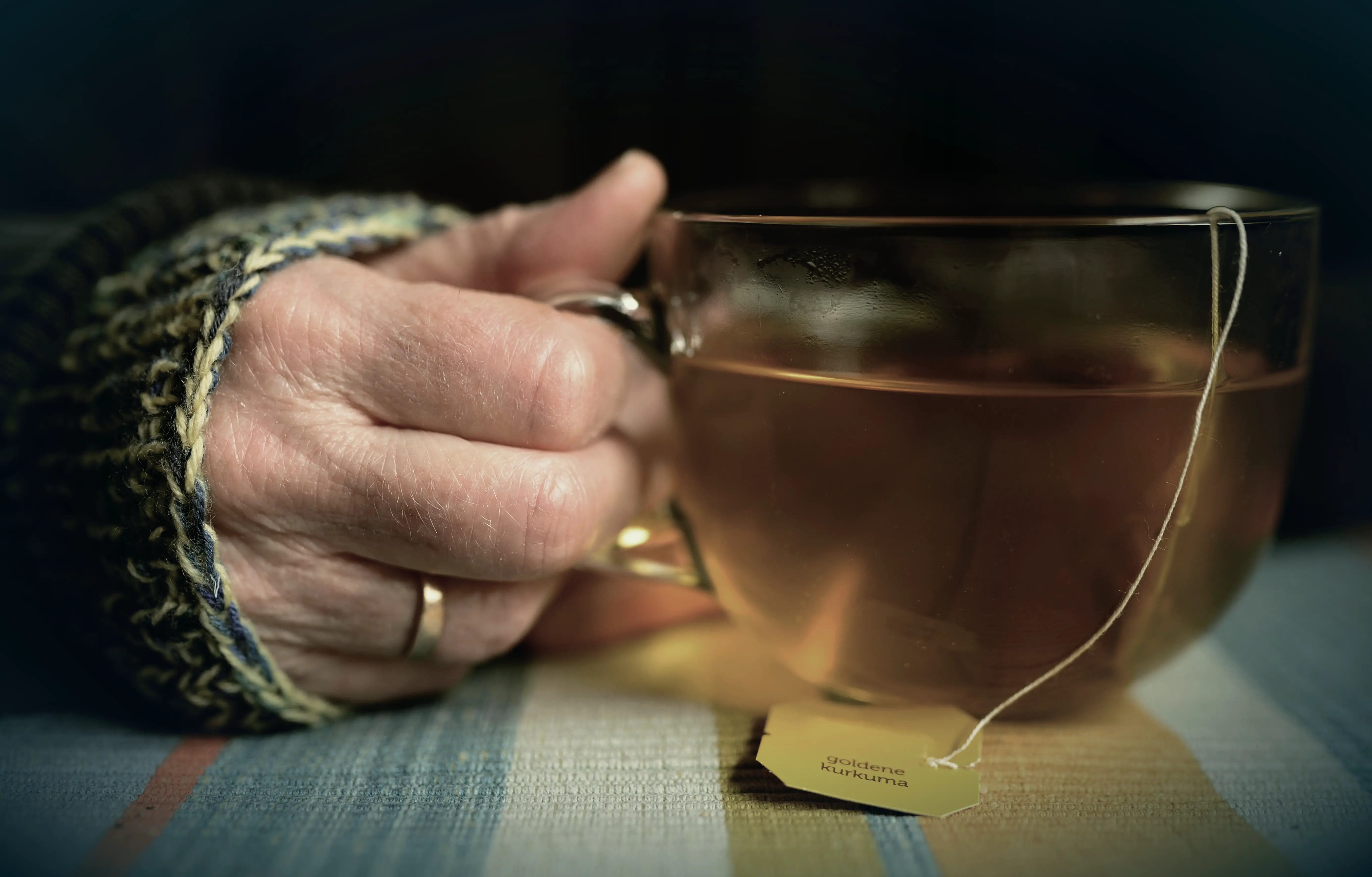
Turmeric is another flowering plant with a rhizome or edible root usually dried and prepared into an edible spice. The root can also be minced and peeled.
The active ingredient disordered inside turmeric is curcumin, a yellow compound famous for its various health benefits. It decreased inflammation and pain by stopping some of the essential pathways that cause this condition.
Curcumin and turmeric have been examined for their impacts on chronic inflammatory conditions such as rheumatoid arthritis, heart disease, and IBD. They might also alleviate arthritic joint pain and soreness in muscles after workout sessions— both of these ailments have resulted from inflammation.
In one 6-day analysis of people with inflammation and pain from osteoarthritis, 1,500 mg curcumin in split doses three times every day significantly reduced discomfort and boosted physical function, corresponding with a placebo.
One more study on 20 active men revealed that taking 400 mg of curcumin decreased muscle soreness and damage after a workout, corresponding with a placebo.
Nevertheless, these analyses employed large doses of dense curcumin, so it is not clear whether sipping turmeric tea will show the exact effect.
If you wish to drink turmeric tea, steam one teaspoon of any powdered peeled, grated, or peeled turmeric root in one pot along with 2 cups (or 475 ml) of water for approximately 10 minutes. Then remove the solids and mix honey or lemon to taste.
Curcumin is nicely absorbed along with black pepper, so you add one pinch of black pepper to your anti-inflammatory tea.
4. Chamomile Teas
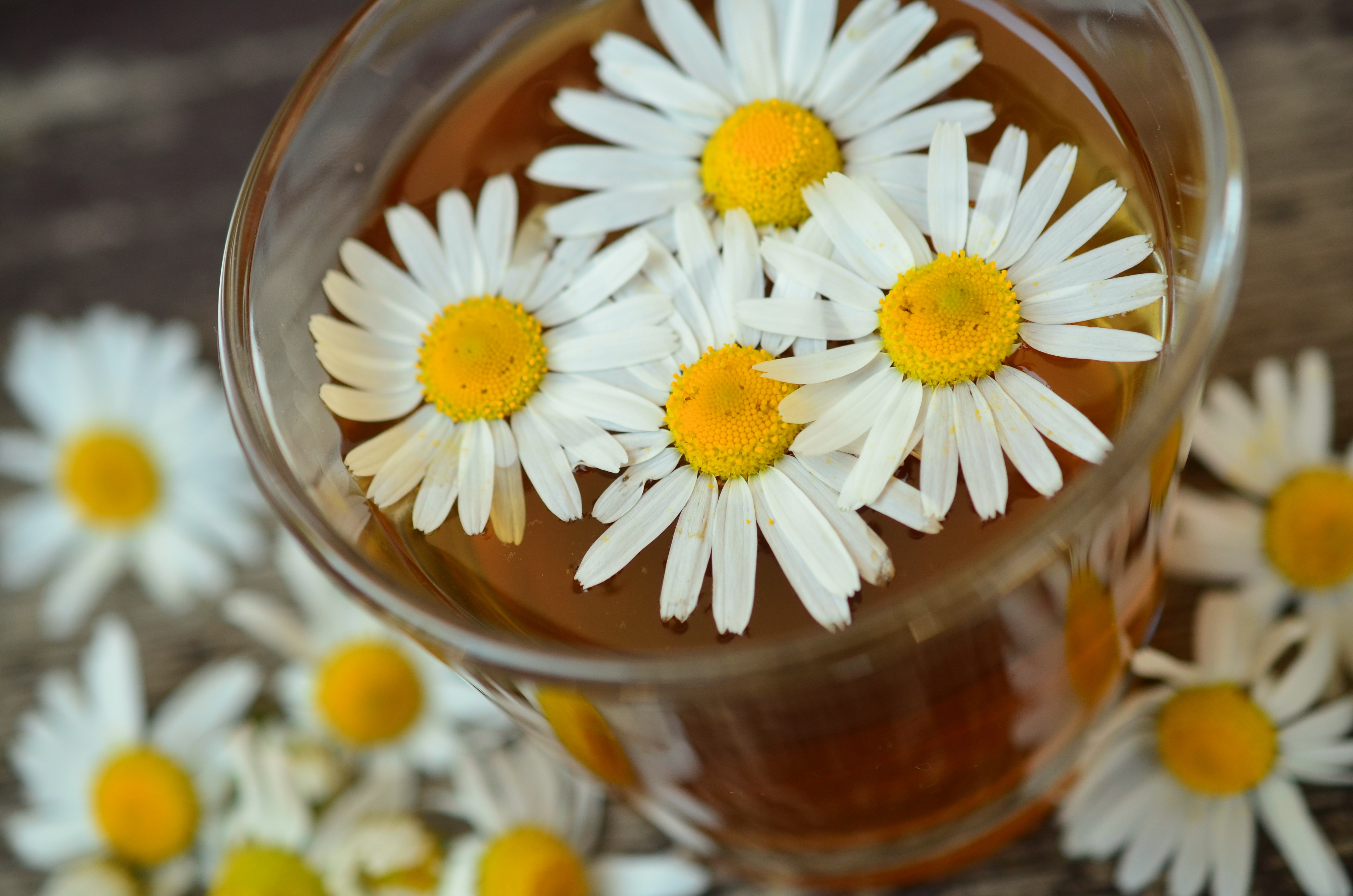
Chamomile is a calming, floral-herbal anti-inflammatory tea that has been employed as an excellent remedy for muscle pain, coughs, colds, and other conditions for centuries. Chamomile has been established to relieve symptoms of inflammation and can furthermore help deliver the immune system a boost to support overall health. Chamomile can be relished on its own or blended with other spices and herbs with a dollop of honey.
5. Cinnamon Teas
Cinnamon is a woody, warm spice that has been used to savor multiple spiced tea mixes, from Dandy Cinnamon Pu-erh Tea to Masala Chai Black Tea and more. Cinnamon tea also possesses anti-inflammatory effects. Whether you are dealing with momentary inflammation due to wounds or exercise or suffering from chronic inflammatory diseases such as arthritis, one cup of cinnamon tea may help to alleviate pain.
6. Clove Teas
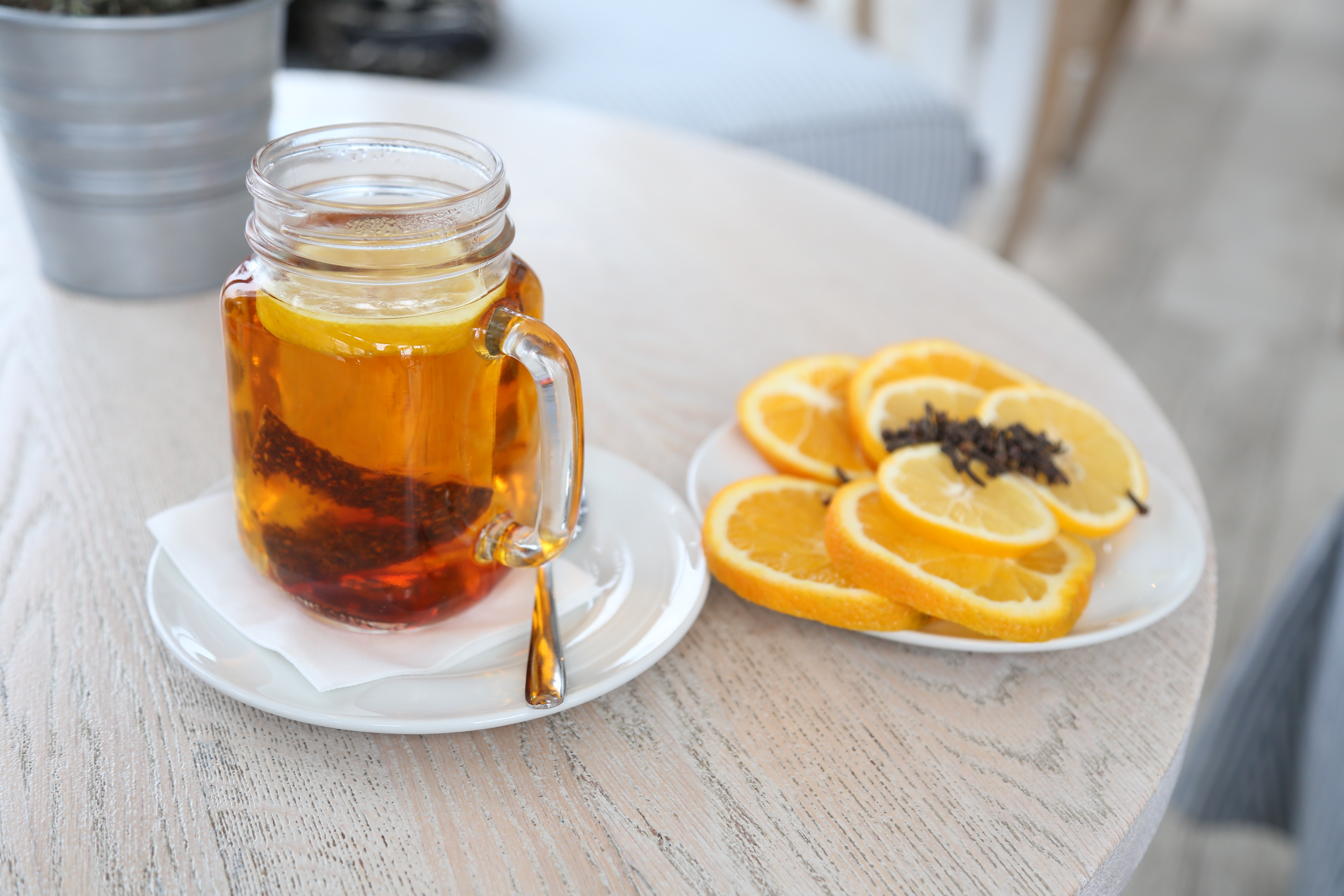
Cloves are primary ingredients primarily used in all tea mixtures. Not only do cloves possess anti-inflammatory effects, but analyses show that they also contain anti-cancer effects thanks to a major component known as eugenol. Cloves are incredibly aromatic, having a subtle spice and sweetness, making cloves a fabulous addition to spiced anti-inflammatory tea mixes.
7. Licorice Teas
Licorice root is initially sweet, which makes the root a widespread choice for adding to herbal tea mixes. Licorice also assists in balancing out robust flavors such as turmeric and ginger, providing a subtle sweetness to such teas. Analysis has revealed that licorice root might help to decrease inflammation. Just be mindful of intaking licorice root in moderate amounts – an excessive amount of this tasty anti-inflammatory tea can raise your blood pressure.
8. Ginger (Zingiber officinale)
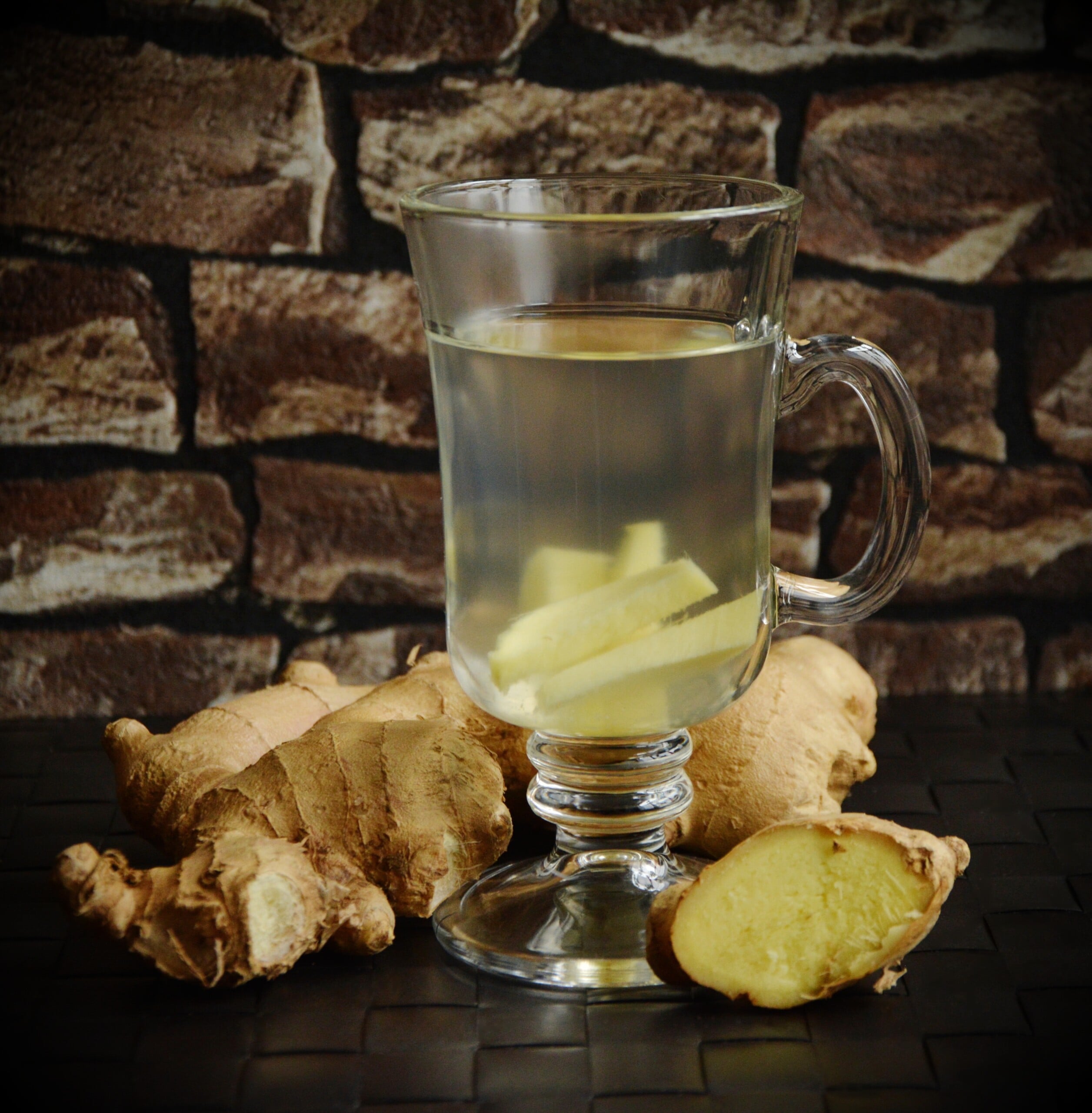
Over 50 different antioxidants have been found within ginger. Many of these compounds lower the production of new cytokines, which are well-known pro-inflammatory components present in your body
In one 12-week analysis, people who have diabetes took 1,600 mg of ginger every day. Ginger was shown to decrease fasting blood sugar, triglycerides, total cholesterol, and inflammatory blood markers, such as C-reactive protein (CRP), corresponding to a placebo.
Likewise, having 1,000 mg of ginger each day for nearly three months helped lower inflammatory markers significantly in people suffering from osteoarthritis. Still, these examinations implemented a higher dosage of ginger — not the regular ginger tea. Hence, it is not clear if drinking ginger tea will have a similar effect.
Because if it’s slightly spicy and sweet, ginger is famous as a delicious anti-inflammatory tea. Brew one tablespoon of peeled, fresh ginger or a single teaspoon of powdered ginger along 2 cups (or 475 ml) of water. Drain it after 5 to 10 minutes, and relish it with honey or lemon
9. Rosehip (Rosa canina)
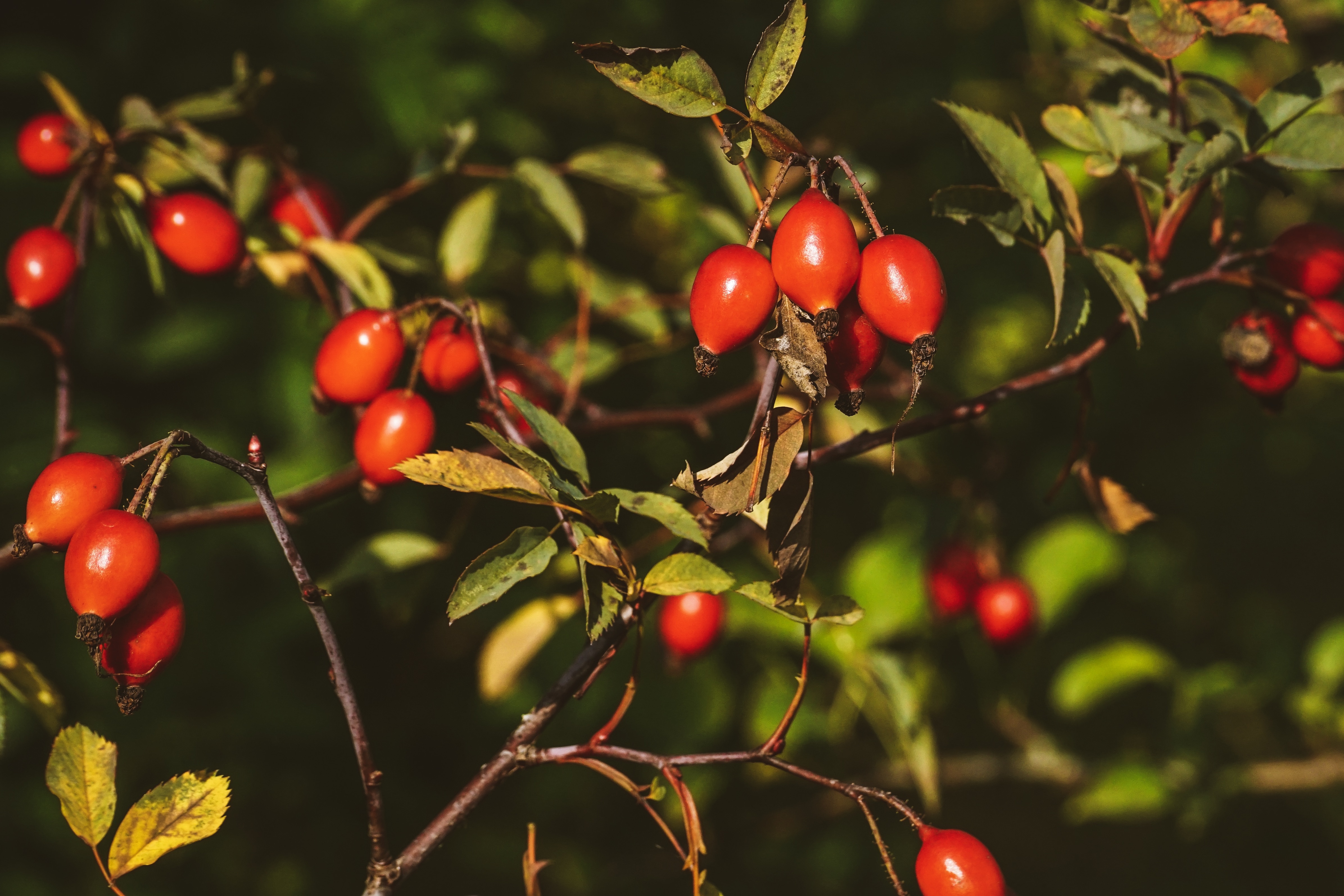
Rose hips are the edible, round, coral-red pseudo-fruits discarded once a rose bush bears its flowers.
They have been used as an excellent herbal medicine for over 2,000 years, as these are rich in antioxidants, such as vitamin C and E, and beta carotene. Rosehips have potent phenolic compounds, anti-inflammatory antioxidants that shield the cells from any damage.
Analysis reveals that rosehip in powdered form lessens pain and additional symptoms associated with rheumatoid arthritis by checking the release of pro-inflammatory cytokine chemicals.
Rose hips furthermore have healthy fat components such as triterpenoid acids, oleanolic acid, ursolic acid, and betulinic acid. These acids hinder the cox-1 and cox-2 enzymes, which induce inflammation and discomfort.
To brew a cup of this anti-inflammatory tea, try taking nearly ten fresh, whole or dried rose hips and crumble or mash them. Blend them with nearly 1 1/2 cups (or 355 ml) of extremely hot (not boiling) water and allow them to steep for nearly 6–8 minutes. Drain the tea to eliminate the solids and mix honey if needed. Rosehip tea shows floral notes and deep red-coral color.
10. Fennel (Foeniculum vulgare Mill)
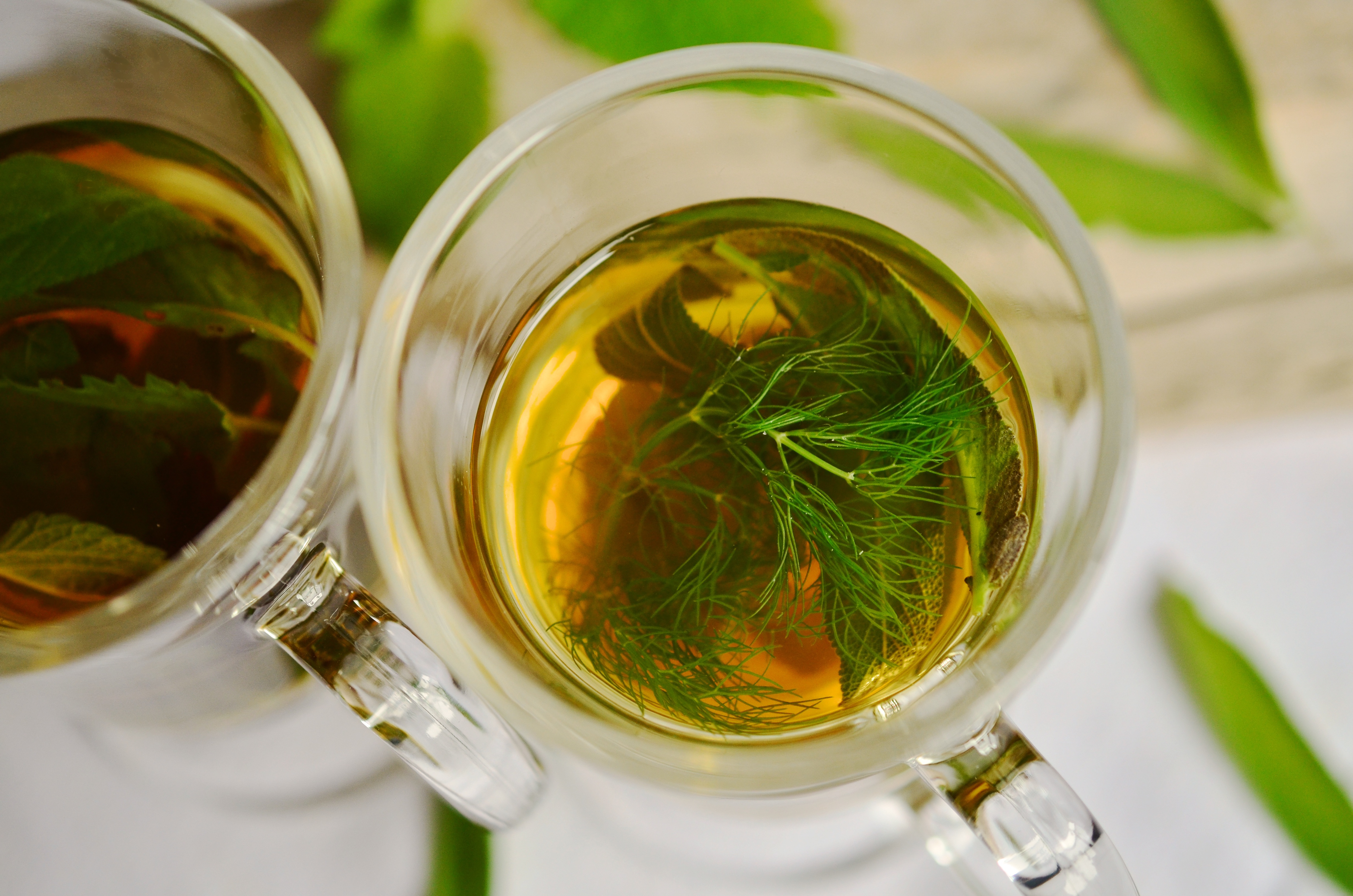
The taste of bulb and seeds from the Mediterranean fennel plant is matched chiefly to anise or licorice. So if you love any of these teas, fennel makes a tasty anti-inflammatory tea that also helps battle inflammation.
Similar to rose hips, fennel is also packed with anti-inflammatory compounds. A few highly active ones include caffeoylquinic acid, quercetin, rosmarinic acid, and kaempferol.
Some studies reveal that fennel might lessen pain, particularly the pain related to menstruation, which might result from its potent anti-inflammatory compounds.
One 3-day research in 60 young ladies revealed that having 120 grams of fennel extract daily decreased menstrual pain significantly, compared with placebo.
Fennel tea is effortless to brew with fennel seeds from the spice cabinet. Drain 1 cup (or 240 ml) of hot water over two teaspoons of mashed fennel seeds and allow them to steep for nearly 10 minutes. Mix any sweetener or honey or if you desire.
Tips and precautions for tea drinkers
Here are a few tips to bear in mind if you have decided which anti-inflammatory tea you will brew.
Brew a better cup
While brewing a new cup of tea, pick loose leaves and a tea infuser instead of a teabag if achievable. An analysis of antioxidants found within tea discovered that loose-leaf teas include additional anti-inflammatory antioxidants compared to tea bags.
The same analysis reported that when soaking tea, five minutes is prolonged enough to pull 80–90% of the antioxidant content in that tea. A longer boiling time will not extract considerably more.
Be resourceful and add different teas and anti-inflammatory herbs and spices such as cardamom and cinnamon, or even fruits like orange slices or lemons. Many of such ingredients work jointly to deliver even better health benefits.
Do not forget that plants prepare teas, which may lose or spoil their power over time. Always try to pick new elements when brewing the anti-inflammatory tea of your choice.
Be careful about the tea’s grade and quantity
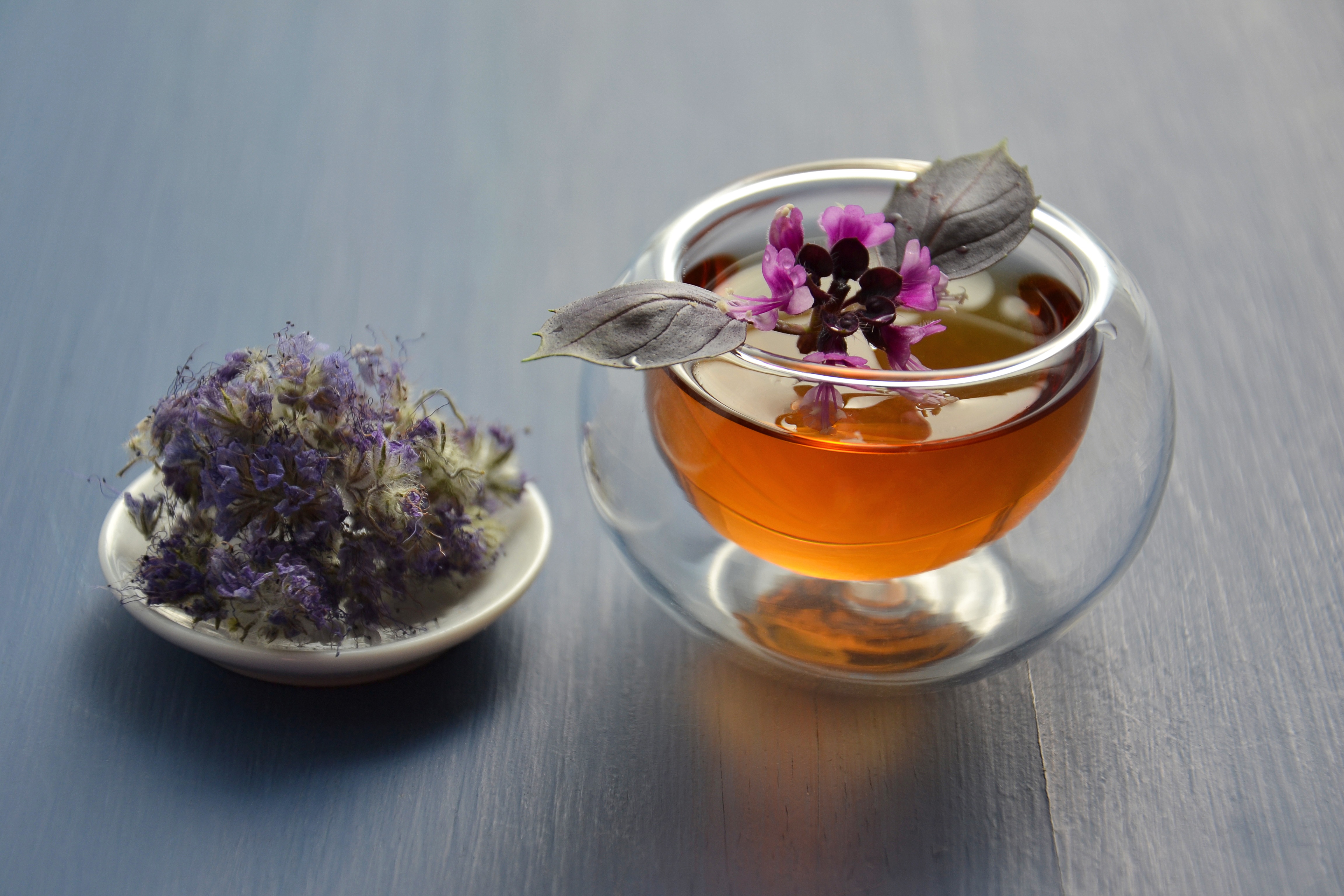
While teas are great to help combat inflammation and deliver different health benefits, there are a few concerns you should consider. A few anti-inflammatory tea plants use herbicides and pesticides, so try to pick high-quality, pesticide-free, or organic varieties.
One previous analysis on pesticides in tea brought from China discovered remains in 198 of 223 samples. In fact, among all the samples, 39 had remains exceeding the European Union’s highest limits.
Additionally, teas must be kept in airtight containers in a dry, dark place. If not reserved correctly, they may carry mycotoxins, a toxic byproduct produced by a fungus that may develop on a few foods and has been discovered in tea.
Eventually, some teas might blend with medications, herbs, or supplements, if you start drinking many of them. Visit your healthcare provider if you have worries about the potential interactions of medications with anti-inflammatory tea.
The bottom line
Drinking tea is one of the easiest and most delicious ways to relish the anti-inflammatory properties and additional health benefits of spices, herbs, and plants.
To gain their inflammation-battling and health-promoting advantages, try sipping on a few teas enlisted above, including rosehip, ginger, green, and turmeric tea.
With such a variety and tastes to pick from, it is no wonder anti-inflammatory tea is one of the most widespread beverages worldwide.

